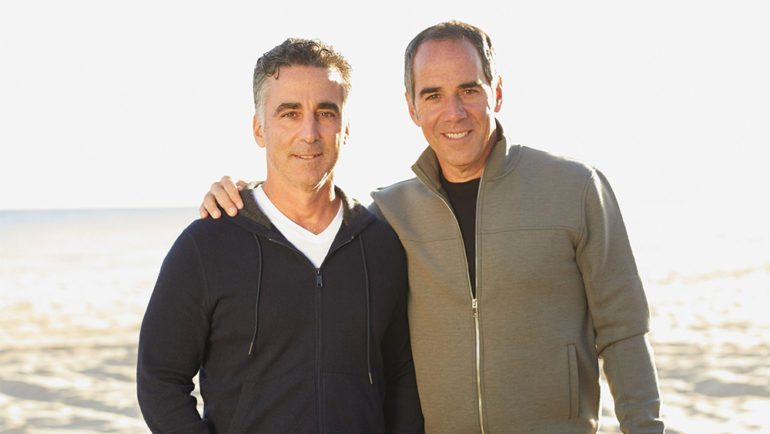Republic Records Named Variety’s Hitmakers Label of the Year
By Roy Trakin
LOS ANGELES (Variety.com) – Republic Records chairman/CEO Monte Lipman takes the news that his company has been named Variety’s Hitmakers Label of the Year for the second time with all the humility, reserve and diffidence that we’ve come to expect out of one of the industry’s indisputable visionaries.
“I am going to get so f–king hammered,” he jokes about the honor, insisting he remains more competitive than ever. “How’s this for a quote? If winning didn’t matter, why do they keep score?”
In all seriousness: “I’m inspired by the fact that we’re so fortunate to represent the biggest, most important artists in the world. We take pride in that, with a tremendous sense of responsibility. We go after it with everything we’ve got. For me, it’s personal. Every time we work with an artist, we’re auditioning, and that never ends.”
Lipman founded the label back in 1995 as a part-time hobby with his brother Avery. They soon entered a joint venture, forming Universal out of the remnants of Rising Tide, the Nashville-based label Doug Morris started with Daniel Glass at MCA after being summarily dismissed at Warner Music Group. Some 23 years later, Republic Records is hardly recognizable from those days — although, critically, it’s still part of Lucian Grainge’s marketshare behemoth Universal Music Group. There wasn’t an overwhelming amount of competition for Variety’s label of the year title: Thanks to Drake and Post Malone, Republic dominated the Top 40 radio landscape — and multiple formats from urban to alternative — not to mention streaming playlists.
The evolution of streaming and new technologies represents “uncharted waters,” according to Lipman. “That makes it both exciting and fun. The new dynamic isn’t transactional, convincing people to go to a store and buy a record, but getting them to listen to it.”
The one-time promotion exec still insists terrestrial radio is a vital component in making hit records. “Radio, in large part, is stronger than it’s ever been, because it curates, it helps raise awareness. Airplay and streaming success often correlate … but not always.”
Lipman insists there were early indicators that would experience across-the-board success, pointing to “Rockstar” as a real turning point in his breakthrough.
“We saw that positive reaction fairly quickly, right out of the gate,” he says. “But ‘Rockstar’ is just one of those moments in a career that happens rarely. When you have a song like that, you just hang on for dear life, and it will take you to places you’ve never been to before.”
Lipman credits Post’s management team, headed by young phenom Dre London. “To their credit, they have done a brilliant job navigating through shark-infested waters. So much of what they did in terms of set-up and introducing him to the marketplace helped pave the way for our success.”
’s streaming success was record-breaking; he was the first artist to accumulate over 1 billion streams in a single week, along with a string of hit singles, “unlike anything we’ve ever seen before. … He’s changed the way we listen to music,” according to Lipman, who declined to address rumors the superstar is shopping a new deal within the UMG family. “There is a tremendous amount of respect in our relationship,” he says. “As a partnership, we’ve enjoyed historic success.”
Another hidden factor in Republic’s chart success was its commerce department, which has largely replaced functions of the traditional sales department, tasked with promoting individual albums and songs to streaming playlists rather than brick-and-mortar retail. “What’s really cool is how each day we talk new ideas, experimentation and taking chances,” he says. “It’s a new art form that takes a lot of strategy, an ability to think on your feet, and not be afraid to make snap decisions. If you’re not willing to embrace that change is a constant, you will lose.”
Republic Records is the latest success story at Universal Music Group, where Grainge has done what Steve Ross did at the old Warners, empowering executives including Lipman, Capitol Music Group’s Steve Barnett and Interscope’s John Janick to compete with one another.
“Lucian really sets the tone,” he says. “He constantly challenges, antagonizes and presses me, but he also allows me to operate with tremendous autonomy. He doesn’t micro-manage. The spirit of this company is entrepreneurial.”
As for why a young hot artist with a substantial online following should sign with a major label, rather than go the DIY route, Lipman offers the same advice he probably gave his newest signee, Taylor Swift: “On behalf of Republic Records, if you want to be the biggest artist in the world, you’ve come to the right place. Look at the scoreboard.”

